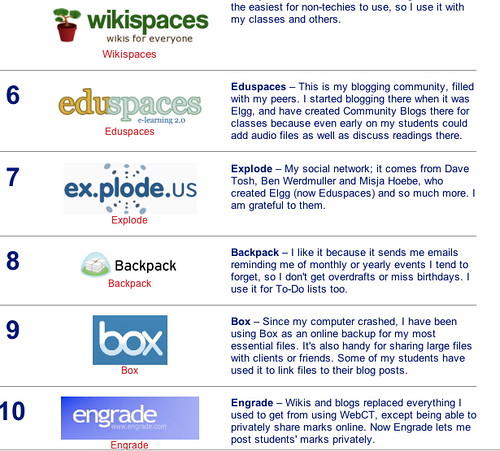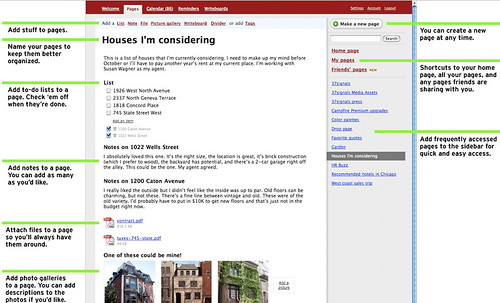
Check out my full list - http://www.c4lpt.co.uk/recommended/joanvinallcox.html
and find the riches in the collection of lists - http://www.c4lpt.co.uk/recommended/index.html
Thanks to Jane Hart and the Centre for Learning & Performance Technologies
Web 2.0 tools for formal and informal learners: students, teachers business people and others.




Canadians use the Internet more than anyone in the world. According to comScore, Canadians spend on average 39.6 hours per month on the Internet, followed by Israel at 37.4 and South Korea at 34, while the USA is in 8th position with 29.4. Canada also leads in online reach with 70% of households having Internet access. The average pages viewed per visitor is 3800 in Canada, while the U.K. is second at 3300. And at 67%, Canada has one of the highest broadband penetrations in the world, 21 points higher than the US. Finally, while Canada still lags in online advertising, with $28.05 per Internet user and the US with $71.43, ad spending is expected to grow 32% this year (Ernst&Young LLP). So Canada is a sophisticated, and growing, market for Web apps.
As in any other country, Canadians heavily use Google, Yahoo and other global services like ebay and craiglist; each of which has their own english and french canadian localized versions. In social networking, Facebook is the star app of the moment. For instance, Toronto has more than 650.000 facebook users, more than the combined facebook users in New York, Boston and Los Angeles.

Wikipedia brings me great joy. I see it as a fantastic example of how knowledge can be distributed outside of elite institutions. I have watched stubs of articles turn into rich homes for information about all sorts of subjects. What I like most about Wikipedia is the self-recognition that it is always a work-in- progress. The encyclopedia that I had as a kid was a hand-me-down; it stated that one day we would go to the moon. Today, curious poor youth have access to information in an unprecedented way. It may not be perfect, but it is far better than a privilege-only model of access.
